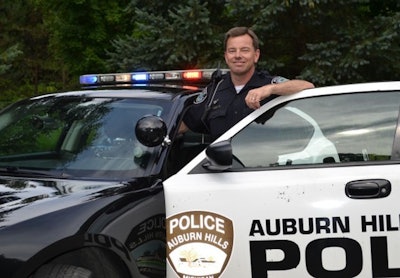 Photo courtesy of Craig Medon.
Photo courtesy of Craig Medon.
I'd like to continue to pass along these lessons so other officers can benefit from what I've learned. Here are six core tenants to follow.
Do your job to the best of your ability. We've all heard the saying that it's not about steering the ship in calm waters, it's about steering the ship during rough seas. Regardless of what's taking place around you, strive to perform at your best. I've also learned that taking shortcuts can come back to haunt us.
Follow your moral compass. Along with a badge, police work comes with a lot of power that causes a few officers to think that they're immune and above the average citizenry. Ask yourself, "If I do what I'm considering, would I want my family to know about it?" If something doesn't feel right, avoid it.
Be careful what you say and to whom. Sometimes we can be our own worst enemy when we don't think before we speak. When that happens, we later regret what we've said. Seek out someone you can completely trust and confide in.
Propose solutions, rather than dwelling on challenges. Is the glass half empty or is it full? We all know officers who complain about anything and everything. They don't take any action to improve their situation. Seeing ourselves as part of the solution and not the problem is important in improving ourselves as well as our police agencies.
There's no "I" in team. This is about taking care of each other in times of need because sooner or later you'll need the help of another co-worker. Comradery and bonding on a given shift strengthen this concept when it's carried out by fellow officers. It's about an officer taking a call for you so you can go to lunch. Perhaps you need someone from another shift to come in early to cover a few hours so you can leave. It's a great feeling knowing that officers will step up and help you because they know you'll do the same for them.
Embrace change. When I started police work, there were no computers, patrol rifles, cameras, defibrillators or kinetic energy impact weapons in patrol cars. Officers didn't carry cell phones and reports and tickets were handwritten. My duty weapon was a .357 Magnum six-shot revolver and fingerprints were taken with ink. Companies and organizations change to remain competitive as well as to deliver improved products and services. Policing is no different. While change sometimes isn't easy for cops, know that the world around us is always changing. Even an old dog can learn a new trick.
Craig Medon retired from the Auburn Hills (Mich.) Police Department.














